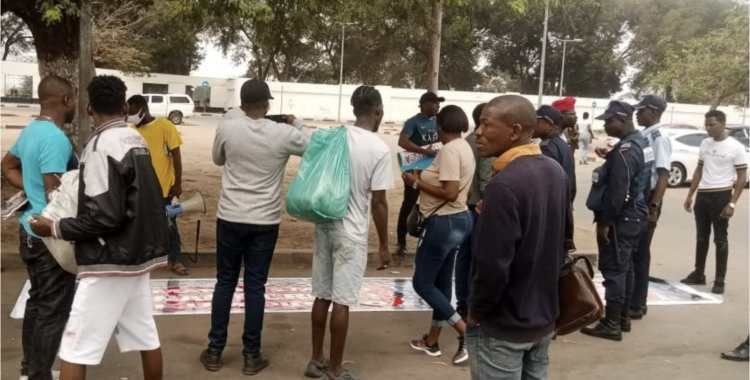"This law on the criminalisation of acts of vandalism will not limit any fundamental rights or fundamental freedoms of citizens; it will only apply when a citizen causes damage to public property", Picasso Costa said in statements to Lusa.
According to the lawyer, the Law on Crimes of Vandalism of Public Property and Services, approved last July and published on 29 August in the Official Gazette, after promulgation by the President, João Lourenço, is only applicable to acts against the security and integrity of public property and services.
"This law will be applied, nothing more and nothing less, to all acts that threaten the security or integrity of public property and services or that directly affect the provision of public services," he stressed.
The law that criminalises vandalism of public property, with penalties of up to 25 years in prison, has been contested by members of Angolan civil society and politics for allegedly limiting the exercise of citizens' fundamental freedoms.
The legal diploma gave rise to the call for a demonstration by civic activists, which was stopped on Saturday by the police in Luanda, followed by arrests and intimidation of journalists who were covering the event.
For Picasso Costa, who expresses a position contrary to that of several Angolan activists and civic associations, the scope of applicability of this law does not aim to restrict the fundamental rights and freedoms of citizens.
"We have not seen any rights that are necessarily restricted by this law. Considering the purpose of the law (applicable to acts against the security and integrity of public goods and services), there are no fundamental rights and freedoms that will be restricted here", he insisted.
This law was approved to deal with the various acts of vandalism of public goods and services that have caused significant damage to the State, putting the sustainability of public investment at risk, as stated in the preamble of the diploma, consulted by Lusa.
The law defines vandalism as any action that results in the voluntary and unlawful removal, damage or destruction of public property, the lawyer points out, arguing that it only applies to demonstrations "if they result in some deliberate damage to a public property or make the functioning of some public service unfeasible".
As for the right to demonstrate, it is enshrined in the Constitution, and it is "necessary to emphasize that demonstrators are not obliged to request, either from public services or from public entities, authorization to demonstrate", the lawyer stressed, referring to the demonstration prevented by the police in Luanda.
Picasso Costa stressed that demonstrators or promoters should only notify the authorities, with a view to guaranteeing their integrity, stressing that the police do not have to authorize demonstrations.
"The police must go out to guarantee the physical integrity of the protesters, that is, they will help the normal flow of traffic so that less favorable situations do not occur for the protesters, that is, the police do not have to authorize the demonstration of those who decide to demonstrate and, within a reasonable period of time, communicate their right to demonstrate peacefully", concluded Picasso Costa.







